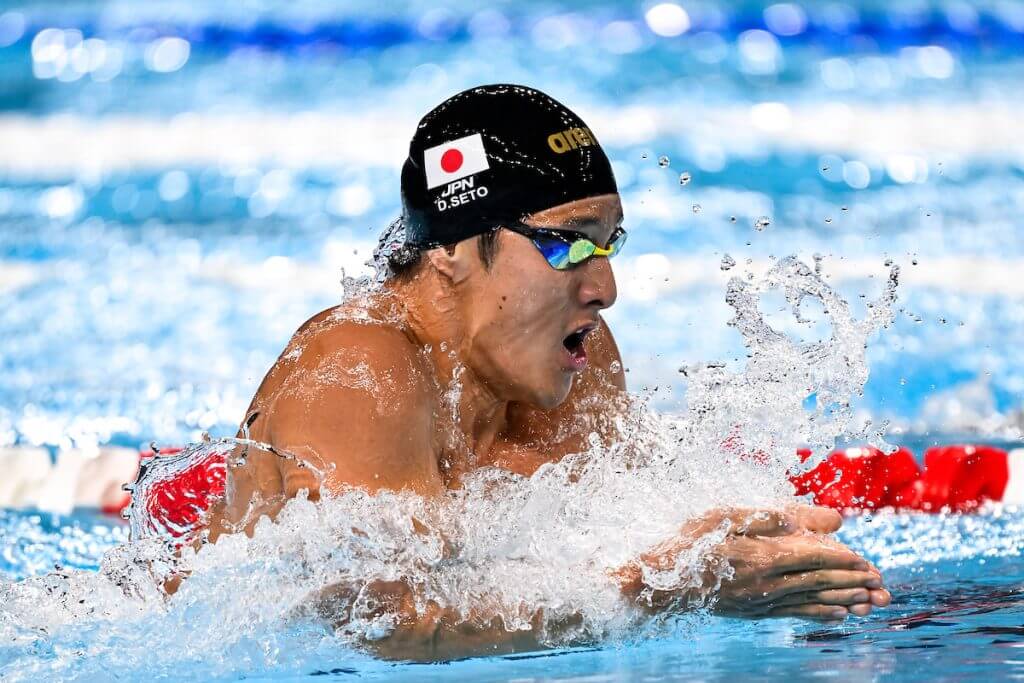Daiya Seto Aiming to Extend Historic Streak at Short Course Worlds

Daiya Seto Aiming to Extend Historic Streak at Short Course Worlds
The streak has spanned a decade, so far. When Daiya Seto first won 400 IM gold at the Short Course World Championships, he was an 18-year-old international rookie who had just missed qualifying for the London Olympics months earlier. That night in Istanbul, with Olympic gold medalist Ryan Lochte skipping the event, Seto finished just over a second ahead of the field as he dethroned Hungary’s Laszlo Cseh, who had captured gold at the four previous editions of the global 25-meter meet.
Seto has not lost since. He defeated countryman Kosuke Hagino by almost five seconds in 2014, then beat Hungary’s David Verraszto in 2016 and Australia’s Thomas Fraser-Holmes in 2018 before squeaking out a two-tenth margin over Russia’s Ilia Borodin in 2021. His sixth such achievement in 2022 brought Seto’s fastest time in his run, although short of his 2020 world record of 3:54.81, as he beat American Carson Foster.
The streak is unprecedented in swimming history, beating out the five consecutive victories that Great Britain’s James Hickman captured in the 200 butterfly between 1997 and 2004. The only other swimmer to win five times was South Africa’s Chad le Clos, who won the 100 fly in 2012, 2014, 2016, 2018 and 2022, although he finished 17-hundredths behind Italy’s Matteo Rivolta in 2021. Meanwhile, at the long course edition of the World Championships, only Michael Phelps has ever captured five titles, while the most consecutive wins is four: Grant Hackett in the 1500 freestyle, Lochte in the 200 IM and Sun Yang in the 400 free.
For some perspective on the length of Seto’s streak, consider the man who joined Seto on the podium with bronze on the occasion of his sixth title two years ago in Melbourne, South Africa’s Matt Sates. Sates was born on July 28, 2003, one day after Cseh won his first World Championship medal. That is the generation gap that Seto’s dominance spans.
Swimmers tend to gravitate away from the longer medley as they get older, with Phelps and Lochte both moving toward races 200 meters and shorter later in their respective careers. Seto has been the exception, willing to devote training time to the grueling event year after year. In addition to his wins at Short Course Worlds, Seto has also won four individual world titles in long course, three of them in the 400 IM, plus six other long course Worlds medals and Olympic bronze in the 400 IM in 2016.
Racing in the Olympic final of the event this year in Paris, Seto swam in second place behind Leon Marchand for most of the race, falling to third at the conclusion of the breaststroke leg but then tumbling completely out of contention on freestyle. But this is short course, where a lack of endurance will not come back to bite Seto down the stretch, and his success in single-stroke events has been much greater in short course than long course. In 2018, Seto captured a short course world title in the 200 fly, breaking the world record in the process, and four years later, he won the 200 breast at Short Course Worlds while finishing two tenths behind the global standard.
The short course edition of the meet sometimes lacks the luster of its long course cousin, with plenty of big-name swimmers passing on the meet to focus on pursuits in the Olympic-size pool. Seto has absolutely taken advantage of those absences, but he has come through year after year at this meet with gold on the line. He will have to do so again at this year’s Short Course Worlds in Budapest, with another high-profile absence creating an opening.
Marchand would have been the heavy favorite to dethrone Seto in the 400 IM and probably knock off the Japanese veteran’s world record, but with the Frenchman opting out of the event, Seto still has the skill and training necessary to get the job done and win gold again. One of the greatest streaks in swimming history is poised to reach seven.



